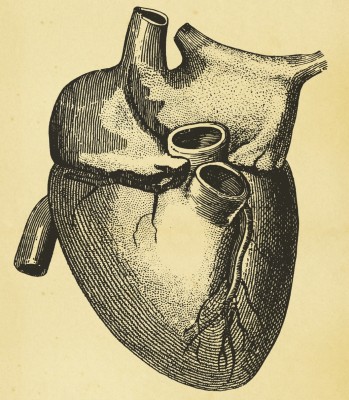Back to Heart Health Basics
In November of last year, the American Heart Association and American College of Cardiology released comprehensive guidelines on lifestyle management to reduce the risk of cardiovascular disease. You can read the full document in the journal Circulation, but their general guidelines for healthy adults weren’t surprising:
- Consume the appropriate number of calories
- Emphasize vegetables, fruits, whole grains, low-fat dairy products, poultry, fish, non-tropical vegetable oils and nuts (Harvard medical school created a great Healthy Eating Plate graphic for planning how your meals should look.)
- Limit sugar, sweetened beverages, and red meats
- Engage in 2 hours and 30 minutes of moderate exercise per week or 1 hour and 15 minutes of intense aerobic activity per week
- Achieve and maintain a healthy weight

At the Heart of the Matter: Vitamin C and Other Micronutrients
In addition to macro-nutrition (protein, fats, and carbs), the micronutrients you will get from the diet noted above are also helpful for staying healthy.
The most commonly looked for nutrients for those concerned about heart health are fiber and omega-3’s, as both are well recognized to help promote sound heart function when used as part of a healthy lifestyle.
A lesser-known nutrient for supporting heart health is vitamin C.
Last month, in a blog titled Keep Taking Your Vitamins, the Linus Pauling Institute called out the importance of vitamin C when it comes to showing our hearts a little love (check out the full blog, well worth the read).
Vitamin C has important benefits in cardiovascular health. A comprehensive meta-analysis of 29 randomized placebo-controlled trials has found that vitamin C supplementation reduces systolic and diastolic blood pressure (Juraschek et al., 2012). Hypertension causes about 350,000 preventable deaths in the U.S. each year through heart disease, stroke and kidney failure. Vitamin C also improves blood vessel dilation in patients with heart disease or coronary risk factors, such as hypertension, type II diabetes, or tobacco use. Many, but not all, large-scale, long-term epidemiological studies have found that a high intake of vitamin C from diet or supplements and high plasma levels of vitamin C are associated with a reduced risk for cardiovascular disease.
Other vitamins and minerals that you may not hear about as often when it comes to keeping your ticker in tip top shape…
- Vitamin K2 helps keep calcium out of our arteries, where it doesn’t belong, by shuttling it into our bones instead. (Check out the book we’ve been reading called Vitamin K2 and the Calcium Paradox by Kate Rhéaume-Bleue for more on this topic.)
- Vitamin B6 has been linked to homocysteine metabolism — having an elevated level of homocysteine has been correlated to heart disease risk.
- Maintaining vitamin D levels between 20-36 ng/mL has been linked to the lowest risk for mortality and morbidity (check with your doctor to determine your vitamin D levels).
- Magnesium intake was recently cited to be inversely associated with mortality in adults at high cardiovascular disease risk in the January 1, 2014, issue of The Journal of Nutrition.
Though heart health month is almost over, the importance of making good choices for supporting cardiovascular health remains important every day of the year. If you or a loved one is concerned about heart health, stick to the basics with a balanced diet and regular exercise as part of your healthy lifestyle and you won’t miss a beat.
We’re proud to bring you the freshest content on the web! Follow USANA on Twitter, like our USANA Facebook page and enjoy the latest videos on the official USANA YouTube channel.
 Learn what USANA is doing to make the world a better place.
Learn what USANA is doing to make the world a better place.
The future of personalized health and nutrition is now available with USANA’s True Health Assessment.










Excellent and valuable information, Camille. And thank you to LPI for great blog on Vitamin C and heart health. It’s important to make every month Heart Health Month.